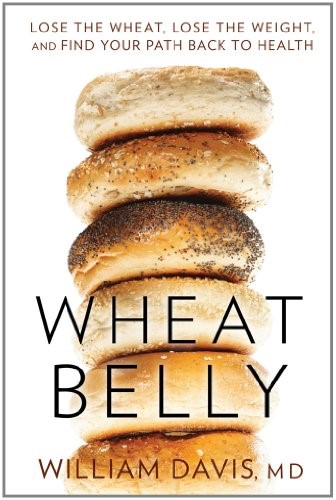
I hope that you have been enjoying the m challenge this month and the information we showcased on health & wellness this month. Many apologies for the delay in our WHEAT BELLY discussion. Between having my home renovated and some family things going on, I got a little behind on our discussion. That said, I finished the book and really loved it. Despite this topic being a little on the dry side for me, there was a lot of humour to keep me entertained while being educated on what wheat does to our systems. It was a good one to listen to on audiobook while I tackled my chores.
As you guys know I eat gluten-free almost 100% of the time, with a few indulgences around the holidays and the occasional, “JUST GIVE ME REAL PIZZA,” moments. For me, it has been transformative in so many ways. My stomach is finally quiet, my skin is no longer as rashy, I have more energy, and even my hairdresser has remarked on how my hair doesn’t even feel the same. Although I never had the colonoscopy to find out if I am celiac, it does run in my family, and I am aware that gluten does something to my body that isn’t good. The change for me has been really transformative. I feel like me again.
WHEAT BELLY focuses on the quality of the wheat that we now consume and how removing wheat from your diet can help you to lose weight and live longer. The scientific research that supported this book as well as patient studies showcased not only the difference in the health of our body, but also how eating clean can help you mentally too.
Although every study and patient situation in this book seemed to have remarkable differences in their health without the gluten, I tend to not be an extremist when it comes to diet planning unless you have a health reason (like having celiac disease) that might not benefit from my, “all things in moderation,” planning.
The most interesting part for me about this book though were the studies on mental health, particularly the schizophrenia study, that showcased how much better patients did mentally with a wheat-free diet. I know that I have felt sluggish and out of sorts when I overload on carbs, but I never realized the benefits of wheat-free eating if you were suffering from a mental illness.

On the Wheat Belly diet you eliminate all wheat, including bread, pasta, cereal, pretzels, doughnuts, etc. You may not eat anything made with wheat, barley, rye, spelt, or certain oats.
Unlike a gluten-free diet, Dr. William Davis cautions against simply replacing these items with “gluten-free” versions, which often contain cornstarch, rice starch, potato starch, or tapioca starch and will not aid in weight loss. The doctor says they trigger the same blood sugar response as gluten from wheat.
As someone who eats gluten-free, I have to agree that I don’t always feel great when I eat products that are gluten-free replacements. I try to eat these in moderation and make smart decisions. Unless it is gluten-free Girl Scout Cookies which happened to be my new discovery this year. If it is those, than I will do the best I can. *ahem*
Davis also suggests cutting out high-fructose corn syrup, sucrose, salt, sugary foods, rice, potatoes, soda, fruit juice, dried fruit, legumes, and more. You should also avoid trans fats, fried foods, and cured meats on this plan.
The diet outlines that you can eat:
Vegetables
Some fruit (namely berries, apples, oranges), but much less of “sugary fruit” (pineapple, papaya, mango, banana)
Unlimited raw nuts, plant-based oils such as olive, avocado, coconut, and cocoa butter
Grass-fed, humanely raised meat and eggs
Full-fat cheese
Ground flaxseed
You can also eat limited quantities of:
Full-fat, unsweetened cottage cheese, yogurt, milk, and butter
Soy in its fermented forms: tofu, tempeh, miso, and natto
Olives, avocados, pickled vegetables, and raw seeds
After you’ve transitioned off wheat, you may eat limited quantities of other whole grains, such as quinoa, millet, amaranth, and chia, as well as beans.
As far as alcohol goes, wheat-brewed beers are definitely off the list, but Davis does support red wine for its heart-healthy benefits. You can read more on the Wheat Belly blog.
Although I don’t eat like this for weight-loss, I can honestly say that I eat like this almost all of the time for my health. At first, the transition was hard. I felt like I was detoxing those first few weeks. Over time though, and as so many other diets support clean eating pop up, it has become easier and easier. Almost everyone I know eats like this now. As a disclaimer, although I choose to eat like this for myself, my husband and family still eat as usual except for the meals we share together. Why? Because ain’t nobody got time for cooking one meal, let alone two meals.
I’m curious for those who read this one what you thought about it? Were there any big moments in this book that made you think or have you considered/done/are doing a diet like this? Feel free to chat in the comments below!
*This post contains affiliate links!